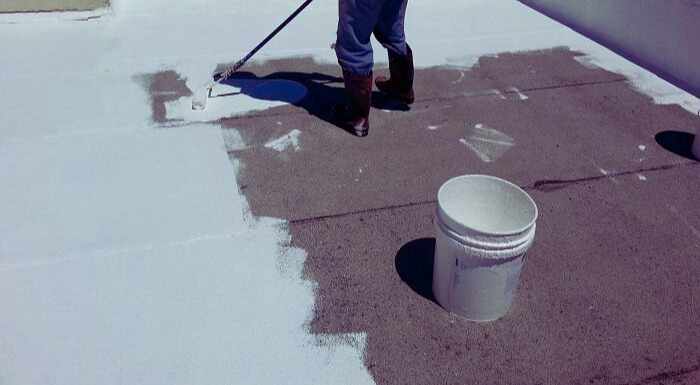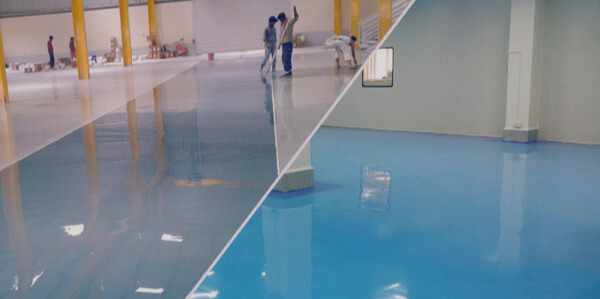Car parks endure heavy foot traffic, vehicle movement, and exposure to various environmental elements, making car park flooring a crucial factor in ensuring longevity, safety, and aesthetics. Choosing the right material for car park flooring involves considering durability, load-bearing capacity, slip resistance, and maintenance requirements. A well-planned car park flooring system not only enhances the structural integrity of the parking space but also improves user experience and safety. In this guide, we explore the best materials for car park flooring, their benefits, and how to make an informed decision.

Importance of Quality Car Park Flooring
High-quality car park flooring is essential for several reasons:
Durability – Car park flooring experiences constant vehicle movement, making it essential to have a surface that can withstand heavy loads and wear over time.
Safety – A slip-resistant car park flooring surface minimizes accidents, ensuring a secure environment for both pedestrians and vehicles.
Aesthetic Appeal – A well-maintained car park flooring enhances the overall look of commercial and residential properties.
Weather Resistance – Car park flooring should be able to withstand extreme temperatures, rain, and other weather conditions without deteriorating.
Easy Maintenance – Choosing the right material ensures the car park flooring remains clean and damage-free with minimal upkeep.
Types of Car Park Flooring Materials
There are several types of materials used for car park flooring, each offering distinct advantages depending on the type of parking area and its specific requirements.
1. Epoxy Flooring
Epoxy is one of the most popular choices for car park flooring due to its durability and aesthetic appeal. It consists of a resin and hardener that form a tough, seamless surface resistant to stains, chemicals, and abrasion.
Advantages:
High durability and strength
Resistant to oil, chemicals, and stains
Easy to clean and maintain
Provides a smooth, polished finish
Available in different colors and designs
2. Polyurethane Flooring
Polyurethane (PU) flooring is another excellent option for car park flooring, offering flexibility, durability, and chemical resistance.
Advantages:
Impact-resistant and flexible
UV-resistant (prevents yellowing in sunlight)
Good slip resistance
Ideal for multi-level car park flooring due to its noise-dampening properties
3. Concrete Flooring
Concrete is a traditional and widely used material for car park flooring, known for its strength and affordability.
Advantages:
High load-bearing capacity
Cost-effective and durable
Resistant to wear and tear
Suitable for both indoor and outdoor car park flooring
Disadvantages:
Prone to cracks over time
Can be slippery when wet
Requires sealing or coating for improved performance
4. Interlocking Tiles
Interlocking tiles are a modular solution for car park flooring, allowing easy installation and replacement if needed.
Advantages:
Quick installation without adhesives
Customizable in different colors and patterns
Good slip resistance
Easy to replace damaged tiles without affecting the entire car park flooring
Disadvantages:
May not be suitable for heavy-load areas
Initial cost can be high
5. Asphalt Flooring
Asphalt is a common choice for outdoor car park flooring due to its ability to withstand weather fluctuations and heavy traffic.
Advantages:
Durable and weather-resistant
Absorbs noise from vehicle movement
Cost-effective for large car park flooring areas
Disadvantages:
Prone to cracks and potholes over time
Requires regular maintenance and resurfacing
Factors to Consider When Choosing Car Park Flooring
Selecting the best car park flooring material depends on various factors:
Type of Traffic – The number and type of vehicles using the car park flooring impact the material choice. High-traffic areas need robust materials like epoxy or concrete.
Slip Resistance – Safety is a priority, and the car park flooring should have an anti-slip surface to prevent accidents.
Weather Conditions – Outdoor car park flooring requires weather-resistant materials like asphalt or polyurethane coatings.
Maintenance Requirements – Low-maintenance car park flooring options save time and money in the long run.
Aesthetic Preferences – Modern car park flooring solutions offer a range of colors and finishes to enhance the overall look.
Budget Constraints – Balancing cost-effectiveness with durability ensures the best long-term investment in car park flooring.
Maintaining Car Park Flooring
Proper maintenance extends the life of car park flooring and keeps it looking new. Here are some essential maintenance tips:
Regular Cleaning – Sweep and wash the car park flooring to remove dirt, debris, and oil spills.
Repair Cracks Promptly – Address minor cracks in the car park flooring before they expand and cause structural damage.
Reapply Sealants and Coatings – Periodic reapplication of protective coatings enhances the durability of car park flooring.
Ensure Proper Drainage – Standing water can lead to damage and accidents; ensure efficient drainage systems are in place for car park flooring.
Inspect for Wear and Tear – Regular inspections help in identifying areas of the car park flooring that need repairs or replacements.
Conclusion : Choosing the right car park flooring is essential for ensuring durability, safety, and aesthetic appeal. Materials like epoxy, polyurethane, concrete, interlocking tiles, and asphalt offer unique benefits, making them suitable for different car park flooring environments. By considering factors such as traffic, weather resistance, maintenance needs, and budget, property owners can invest in car park flooring that enhances the longevity and functionality of their parking spaces. Proper maintenance and timely repairs further contribute to the performance of car park flooring, ensuring a secure and efficient parking area for years to come.




Write a comment ...